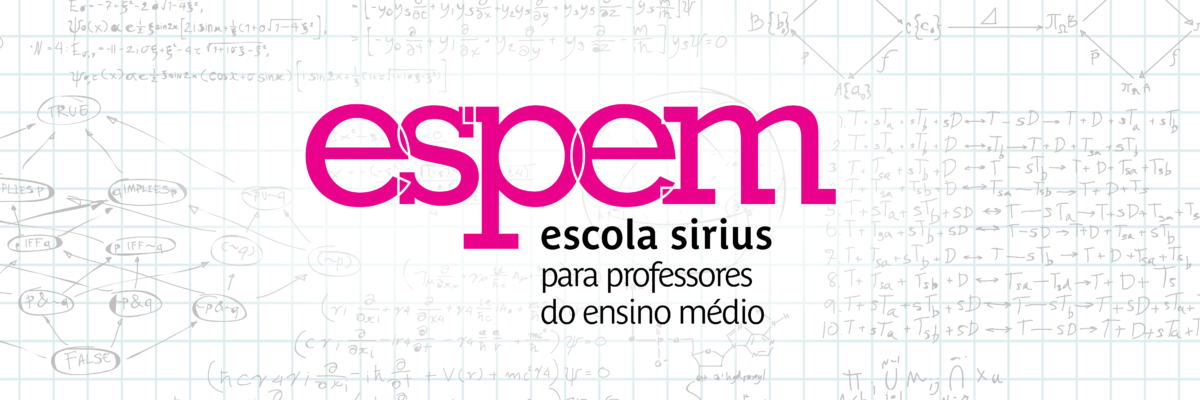Teachers are immersed in the Center’s atmosphere of cutting-edge research and development
TRAINING
CNPEM IN THE CLASSROOM

How can we understand the science represented by numbers and graphs in real-world applications?
At CNPEM, sciences such as physics, mathematics, chemistry, and biology play a role in many projects. Through mastery of these areas, researchers design solutions to the problems we face. Here waves, graphs, and reactions transform into energy, light, movement, friction, and answers, leaping off the pages of textbooks and making complete sense.
At the Sirius School for High School Teachers (ESPEM), an event promoted by CNPEM in partnership with the Brazilian Society of Physics (SBF) and financed by MCTI with resources from the Science in School program, teachers from municipal, state, federal, and private schools all over the country have the opportunity to become students again for a week, as part of an immersive experience in CNPEM’s cutting-edge research and development atmosphere, in order to bring ideas from modern science into the classroom.
The ESPEM program presents the Sirius synchrotron light source (which also lends its name to this event), including an introduction to particle accelerators, synchrotron light production, the interaction between light and matter and applications in the various areas of science. The teachers also come into contact with the research being carried out at each of CNPEM’s National Laboratories, through visits to these facilities and seminars on current topics related to the different areas in which the Center’s researchers work. The ESPEM program is more than just an initiative to disseminate information about CNPEM’s activities: it brings teachers closer to the context of scientific research. The Sirius School has the potential to be a turning point in the training of teachers who participate, as well as in their practice inside and outside the classroom.
The in-person editions of ESPEM, held in 2019 and February 2020, included guided tours through Sirius.
ESPEM 2019
The first edition of ESPEM was held January 14–18, 2019, bringing together 20 physics teachers selected from the public school network in 16 states and the Federal District.
Testimonials from ESPEM 2019
Participating in ESPEM was a great gift. We went outside our box of classroom convenience, away from the traditional focus on content, that often makes physics look like something difficult to access.
ELOÍDES DE SOUSA MELO (AM)
ESPEM had a wide variety of teachers from all states and all ages, so the exchanges of experience among teachers were incredible.
FRANTCHESCO ROMÁRIO DE ALENCAR (MT)
ESPEM motivated me to innovate within the school context, and opened my eyes to our science, to disseminate Brazilian science and inspire children and adolescents to interact with the world in the constant quest to question themselves.
LIZA MACEDO LOPES (PR)
ESPEM 2020
The second edition of ESPEM was held on January 20–24, 2020 with 35 physics teachers, mainly from the public school network, from 21 states and the Federal District. This edition was funded by the MCTI with resources from the Science in School program.
Testimonials from ESPEM 2020
Bringing this back to our students will make a very big difference in their lives. They will see science differently, that there are many questions that have not been answered, and they are the ones who will answer them.
ALEXANDRE FARRAPO CAMPOS (CE)
It was a unique experience. The experience of interacting with the researchers will make a major difference in future planning and projects with the students.
MADGE BIANCHI DOS SANTOS (SC)
I believe that ESPEM has not only boosted my personal motivation to continue discussing modern physics in my teaching practice, but has made me realize new pathways towards interdisciplinary discussions.
RAFAELLE SOUZA (PB)
The program of the meetings includes an introduction to particle accelerators, the production of synchrotron light, and the interaction between light and matter and its applications in different areas of science.
ESPEM 2021
The third edition of ESPEM was held July 26–30, 2021 in a virtual setting. For the first time, the course included physics, chemistry, and biology teachers with diversified content in language appropriate for all areas. This edition included 254 teachers from 23 states and the Federal District.
Testimonials from ESPEM 2021
ESPEM contributed significantly to the construction of new understandings on so many topics. It was a delightful experience, and one of the best I’ve seen during the pandemic
LUCIANA DA CRUZ BARROS (PA)
ESPEM is a fantastic event, very well structured and with up-to-date content. The speakers are excellent and teach clearly. It would be excellent if all teachers could participate in events like this.
KELLY DE SOUZA DO NASCIMENTO VIEIRA (ES)
I would like to highlight how important events like these are to promote dialog between cutting-edge researchers and basic education teachers.
OSVALDO CANATO JÚNIOR (SP)
